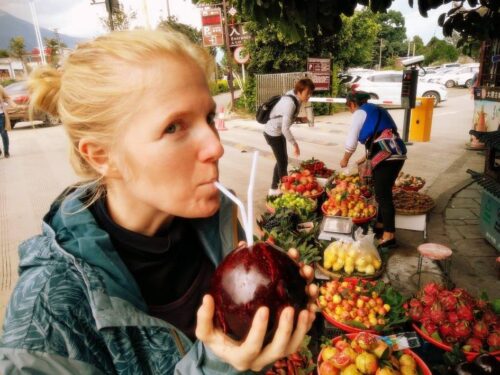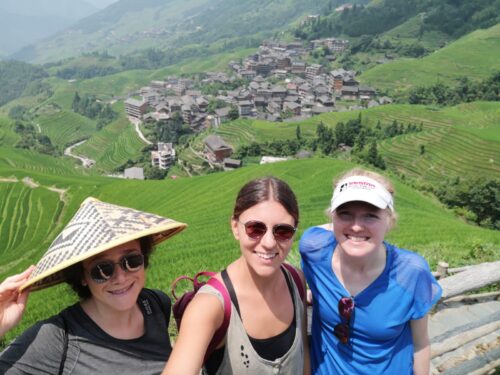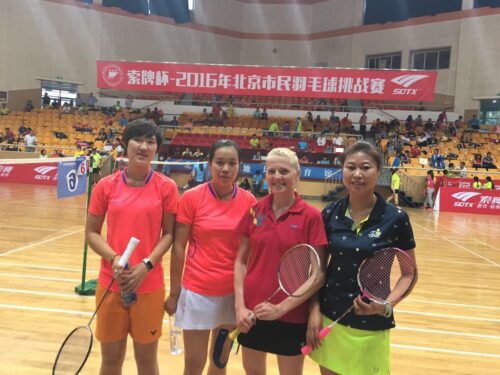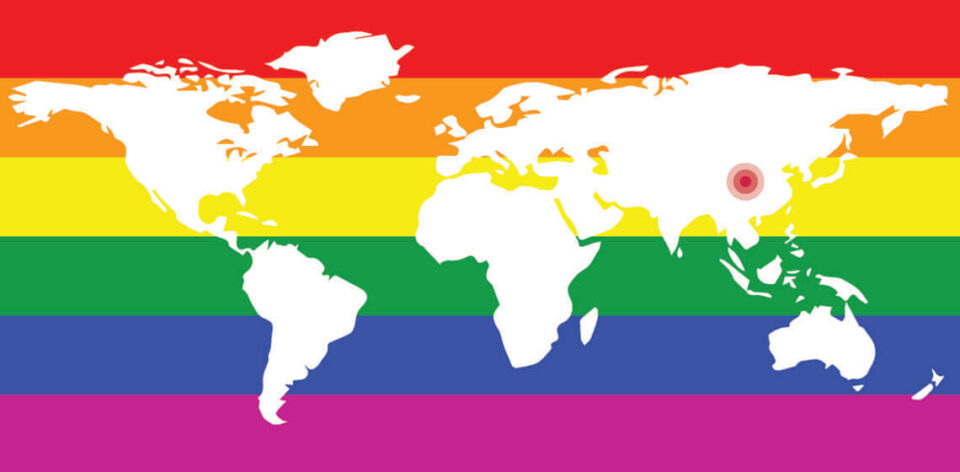With our first interview of the year, we would like to invite you on a world tour that started in Estonia and ended in Hungary but included ten years in different parts of China such as Beijing, Shenzhen, and Hong Kong. Are you ready?
Hi, Madli! Welcome. Can you briefly introduce yourself please?
Hello! My name is Madli. I’m originally from Estonia and currently residing in Budapest where I’m attending university. I enjoy music in many forms, spending time outdoors, and playing badminton. I’m also interested in languages; I’m especially fascinated by Hungarian because of its special connection with Estonian! In the past, I also studied Chinese and lived in China for a decade. I spent most of my time in Beijing but I have also lived in Shenzhen, Kunming, and Hong Kong S.A.R.

What a journey! Welcome to Hungary! We would be especially interested in your experiences in Asia, as we rarely get the privilege to hear the stories of our community members from that region. So, can you tell us about how it is to live in China as an LGBTQ+ person?
There is no legal recognition of the LGBTQ+ community in mainland China, the only exception being limited rights for foreign same-sex couples residing in Beijing. Homosexuality was on the list of mental disorders until 2001, only a short 20 years ago. There aren’t any religious grounds for such discrimination, unlike in some other parts of the world, but socially speaking it is still difficult for Chinese LGBTQ+ individuals to lead “normal” lives because there is a strong expectation for young adults to get married and have children. This has been intensified by the infamous one-child policy, concentrating the hopes and dreams of millions of parents on their single offspring. Due to this and the fear of societal persecution, gay and lesbian couples sometimes arrange “cooperative marriages” amongst each other in order to meet the expectations placed on them; many also raise children in this way. The importance of community for Chinese LGBTQ+ people is also reflected in the popular Chinese word used to refer to gay people, “tóngzhì”, which commonly translates into the Socialist ‘comrade.’

That sounds super interesting! Focusing a bit more on women’s situation within the community, how much would you say lesbians are visible in China?
There tends to be a popular view in China that lesbians fall into two categories: feminine Princesses (“P”) and more masculine Tomboys (“T”), and that lesbian couples are usually formed from one member of each category, visually imitating straight couples. This is also often true, or at least these kinds of couples are easier to spot in public.
Also, personal vs public space is less important in China than it is in the West. It is common for two women to be holding hands in public and even for men to walk around with hands around each other’s shoulders, so I was often wondering if the people I saw doing that were a couple or just friends. In that way, I suppose same-sex couples can feel a bit more free than in Europe for example, where this kind of closeness is less common in public spaces. In my workplace, the visibility of LGBTQ+ people was fairly low, but I did know some individuals. A male intern on my team – in his early 20s at the time – was quite open about his sexuality and talked about his boyfriend sometimes. I knew a female colleague who was identified as “T” by a friend of mine who was also friends with her.
By what you are saying, it does not sound too bad.
Yeah. Overall, being anything other than straight seemed for me to be viewed as somewhat exotic or quirky by my straight local friends, which likely reflected the low level of visibility of LGBTQ+ individuals around them. Rainbow families are not a common sight in China as it is not legally supported; however, there are activists in the community who have rainbow families themselves and who organize events for other LGBTQ+ people to know more about how to make it happen. When I was still living in Beijing, I attended an event where a British-Chinese male couple talked about how they started their family; my (non-Chinese) girlfriend at the time attended a several-day-long women’s retreat with a similar purpose, organized by a Chinese lesbian couple with two kids. Those events were mainly attended by Chinese LGBTQ+ individuals and couples.

I must say this sounds better than what I had expected. Can you say a bit more about lesbian social life?
Beijing, where I lived the most, has a community-supported LGBTQ+ safe space and many bars and events oriented towards the community. Other cities such as Shanghai and Chengdu are also famous for their LGBTQ+ acceptance and activism. During my years in Beijing, I sometimes attended a queer women’s social evening, which took place quite regularly at a low-key old town bar and was famous for its drink deals and a somewhat worn out foosball table which was always occupied. It was attended by expats and locals alike, and was a fun way to meet new people in the community. An annual formal was hosted at around the time of the Shanghai Pride in June, with the venue kept secret until the last minute to minimize the chances of authorities finding out about it. There is also a legendary, mostly gay male-oriented dance club called Destination, which has been a welcoming space for the community for decades and a must-visit place for any LGBTQ+ visitors to the city.

